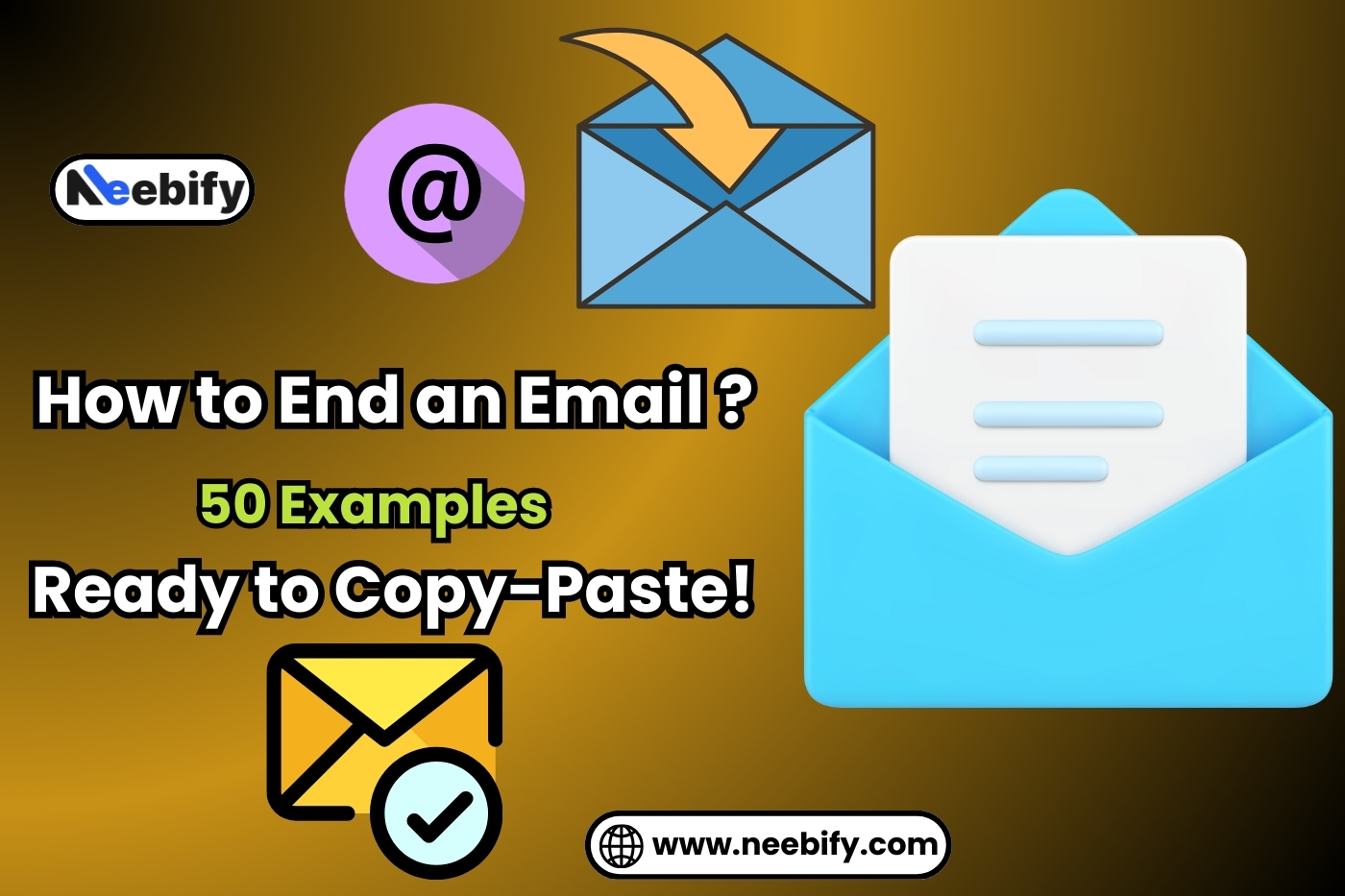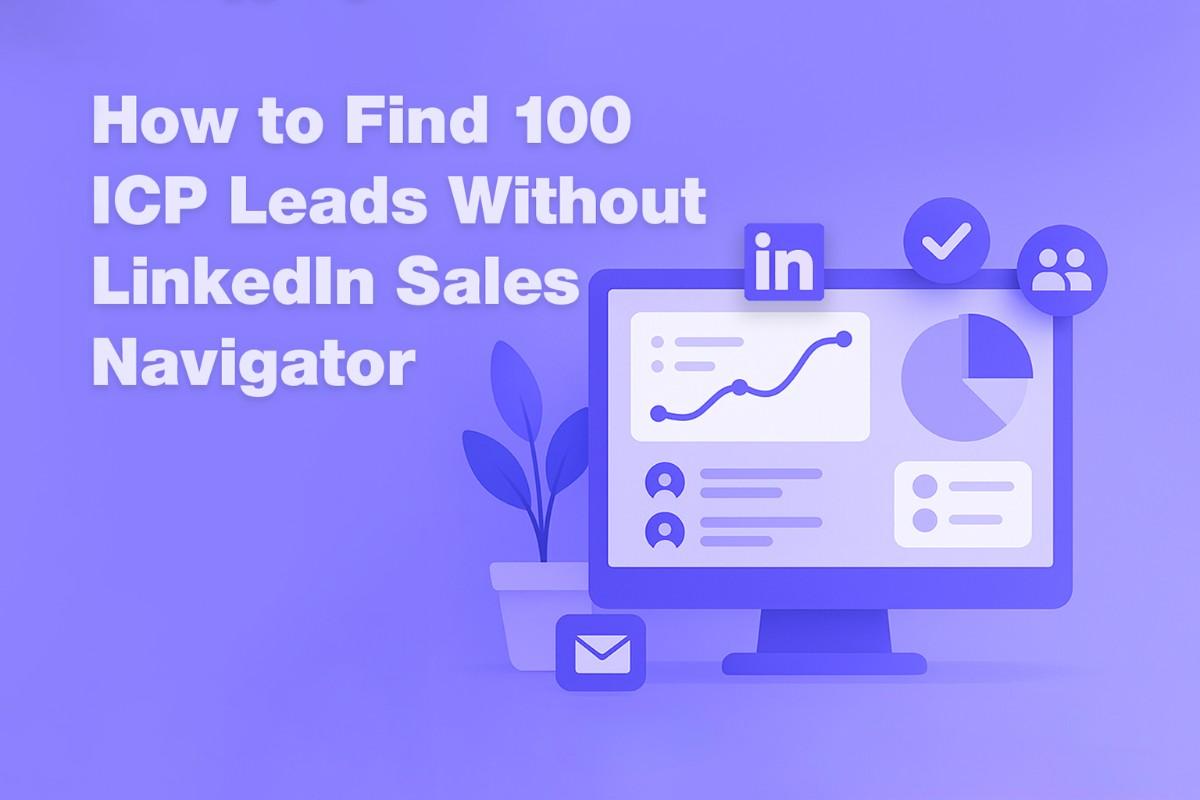Table of content
How to End an Email? 50 Examples Ready to Copy-Paste!
Email communication plays a vital role in our everyday professional and personal lives. Whether one is emailing a colleague, potential client, or a hiring manager, knowing the right way to end an email can make a big difference. A well-chosen email closing phrase may convey the correct tone and motivate the recipient to interact further.
We will cover various email closing phrases in this article-most suitable for job applications, thank-you notes, and administration letters. You may also find some professional email closings examples and how to end an email politely you can copy-paste right away. Let's start with the best how to end an email professionally and the best email sign-offs.
How to End an Email Professionally?
When it comes to the proper ending of an email professionally, the right closing is important. Whether you're writing to a superior, a client, or a colleague, your ending should reflect the flavor and tone of your message. Here are some tips on how to do it:
1. Use a Clear, Concise Closing: Be brief yet polite when closing an e-mail. A clear closing helps the recipient understand your intent and expectation.
2. Match the Tone of the Email: If the email is formal, ensure your closing is too. For informal emails, a more casual sign-off works better.
3. Add a Call to Action if Necessary: If you’re waiting for a response, consider adding a polite request for feedback or further steps.
Here are 10 examples of professional email closing examples that will work for almost any situation:
1. Sincerely: Classic and formal; works for business communication.
2. Best regards: A more casual alternative to Sincerely, often used in professional correspondence.
3. Kind regards: Slightly warmer than Best regards, suitable for both professional and semi-formal situations.
4. Yours truly: Traditional and formal, often used for business letters and cover letters.
5. Respectfully: Often used when speaking to someone of higher authority or for a formal tone.
6. Kind regards: Nice and professional, for semi-formal emails.
7. Best regards: Friendly but still professional; suitable to end the mail if it goes well, in appreciation.
8. Thanks again: Use this line if you have mentioned thanks somewhere in the mail.
9. Look forward to hearing from you: Best for a mail that expects a response or follow-up.
10. I appreciate your time: Nice way to end professional emails.
10 Closing Email Phrases for a Job
While applying for a job, how to end an email can make all the difference for a good impression. A "job application email" should always depict professionalism and appreciation. Here are ten great email sign off examples for job-related emails:
1. Dear Hiring Manager, thank you for considering my application. I look forward to hearing from you.
2. I would like to take this opportunity to offer my contribution to your organization. Thanks and all the best.
3. I'll be happy to answer any other questions you may have.
4. Thank you for the time taken to consider my application. Thanks once again.
5. I shall eagerly await to discuss how my skills may help your company. Sincerely,
6. Thank you for your time and attention to my application. I look forward to your response.
7. I am enthusiastic about the opportunity of working with your team. I look forward to your feedback.
8. Thank you for your consideration. I am looking forward to the possibility of working together.
9. I appreciate the opportunity to apply for this position. I am looking forward to your response.
10. I would appreciate the opportunity to meet with you and discuss further how I could be an asset to your organization.
These phrases capture the right amount of professionalism, respect, and enthusiasm that are needed to appropriately conclude your job application emails.
10 Ending an Email with Thank You
Among all possible actions in both business and private correspondence, sending an email with a note of thanks is perhaps one of the most polite and appreciated. Here are 10 polite email endings that convey gratitude very efficiently:
1. Thank you for your time and consideration.
2. I sincerely appreciate your help with this matter.
3. Thank you for your prompt response.
4. Thank you for your assistance. It is much appreciated.
5. I'm grateful for your time and attention.
6. Thanks again for your support and collaboration.
7. I really appreciate your willingness to help.
8. Many thanks for giving me a thought.
9. Thank you for your patience and understanding.
10. I appreciate your help and look forward to working together.
These email ending phrases for work not only express gratitude but also reinforce your professionalism and positive relationship with the recipient.
10 Phrases for Warm & Cool Email Sign-offs
An email sign-off can also reflect the tone of the conversation, whether warm, cool, or casual. For example, if you want to express warmth or friendliness, use sign-offs for that purpose. Similarly, cool and professional sign-offs can be maintained to carry over a formal tone in the message.
Warm Email Sign-offs:
1. With warm regards: A friendly and personal alternative to Best regards.
2. Warmly: Short and sweet, good for colleagues or clients you have a good rapport with.
3. Take care: Casual, yet warm, good for informal professional exchanges.
4. With appreciation: Shows gratitude and a warm attitude.
5. All the best: Warm and positive, works for professional and personal emails as well.
Cool Email Sign-offs:
1. Best: A neutral, clean sign-off often used in semi-professional emails.
2. Cheers: Informal, widely used between friends or colleagues who are acquaintances of each other.
3. Later: Very informal, best for close friends or close colleagues
4. Talk to you soon: Informal, great for someone who co-operates with you a lot.
5. Till next time: Friendly and cool, expresses ongoing communication.
After all, the correct tone would determine proper relationship building with the receiver whom he is treating informally, whether his manner is warm or cool.
10 Formal Cover Letter Examples
The tail end of your cover letter is as important as the body of your letter. It's your last opportunity to make a good impression. These formal email endings are ideal to use when ending a professional cover letter:
1. Sincerely yours: This is a formal and respectful salutation.
2. Respectfully yours: A little more formal than Sincerely yours.
3. Yours faithfully: Often seen in formal business letters, particularly in the UK.
4. Cordially yours: formal and polite, perfect for business correspondence.
5. Kind regards: less formal but still business-like.
6. Thank you for your time and consideration.
7. I welcome the chance to talk over my qualifications further.
8. Thanks for considering my application. I look forward to hearing from you.
9. I am excited at the prospect of discussing how my skills can meet your needs.
10. Thank you for your time to consider.
I look forward to hearing from you.
These formal email endings will convey a professional yet thoughtful impression on your potential employer.
10 Polite Expressions for Administrative Letters
Administrative letters generally carry a formal tone and are written with professionalism and respect. Here are some polite email endings suitable for administrative communication:
1. Thank you for your consideration of this matter.
2. I look forward to your prompt response.
3. Please do not hesitate to contact me if you need more information.
4. Thank you for your time and understanding.
5. I look forward to your feedback.
6. Please let me know if you require any further information.
7. Thank you for your cooperation.
8. I would appreciate it if you could take quick action on this.
9. I look forward to quickly resolving the situation.
10. Thank you for your continued support.
These polite email endings guarantee that your message gets delivered with the preferred tone-professionality and respectness.
Conclusion
Whether you are closing a job application email, sending a thank-you note, or composing a professional business email, it is one of the trickiest ways in which your message will be significantly affected by how you end an email. Using the right closing words for email, you may actually leave an impression that resonates with your audience. Email closing etiquette must always correspond to the tone you have maintained in the mail, hence, correspondence with the email sign-offs.
From email closing examples professional to funny email sign-offs, the options are endless. So, next time you wonder how to end an email professionally, refer to this list and choose a sign-off that really suits your message as well as the recipient.
By using these email ending phrases for work and sign-off ideas, you will improve your email communication and ensure that your messages end on a positive note, professionally. Happy emailing!
Get your next meeting in a
matter of minutes.
Free Trial
Latest
The Ultimate LinkedIn Outreach Playbook 2025
A practical, modern guide to mastering LinkedIn outreach in 2025 — learn how to boost reply rates, p
12/1/2025How to Find 100 ICP Leads Without LinkedIn Sales Navigator
Generating 100 targeted ICP leads doesn’t require LinkedIn Sales Navigator. Learn how to leverage fr
11/28/2025


